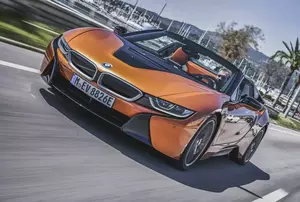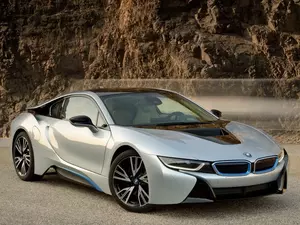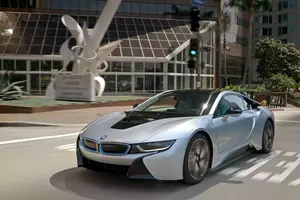
| Vehicle | Curb weight | Difference from world's smallest | Weight to power ratio | 0—60 mph acceleration ratio | Consumption ratio |
|---|---|---|---|---|---|
| 1.5/11.6 kWh |
1595 kg / 3517 lbs |
1170 kg (2580 lbs) heavier | 7 kg to 1 hp | 363 kg/s (800 lbs/s) |
798 kg/L (1760 lbs/L) |
| Vehicle | 1.5/11.6 kWh |
|---|---|
| Curb weight |
1595 kg / 3517 lbs |
| Difference from world's smallest | 1170 kg (1170 lbs) heavier |
| Weight to power ratio | 7 kg to 1 hp |
| 0—60 mph acceleration ratio | 363 kg/s (800 lbs/s) |
| Consumption ratio |
798 kg/L (1760 lbs/L) |

| Vehicle | Curb weight | Difference from world's smallest | Weight to power ratio | 0—60 mph acceleration ratio | Consumption ratio |
|---|---|---|---|---|---|
| 1.5/11.6 kWh |
1535 kg / 3385 lbs |
1110 kg (2448 lbs) heavier | 7 kg to 1 hp | 365 kg/s (805 lbs/s) |
853 kg/L (1881 lbs/L) |
| Vehicle | 1.5/11.6 kWh |
|---|---|
| Curb weight |
1535 kg / 3385 lbs |
| Difference from world's smallest | 1110 kg (1110 lbs) heavier |
| Weight to power ratio | 7 kg to 1 hp |
| 0—60 mph acceleration ratio | 365 kg/s (805 lbs/s) |
| Consumption ratio |
853 kg/L (1881 lbs/L) |

| Vehicle | Curb weight | Difference from world's smallest | Weight to power ratio | 0—60 mph acceleration ratio | Consumption ratio |
|---|---|---|---|---|---|
| 1.5/7.1 kWh |
1485 kg / 3274 lbs |
1060 kg (2337 lbs) heavier | 6 kg to 1 hp | 354 kg/s (781 lbs/s) |
707 kg/L (1559 lbs/L) |
| Vehicle | 1.5/7.1 kWh |
|---|---|
| Curb weight |
1485 kg / 3274 lbs |
| Difference from world's smallest | 1060 kg (1060 lbs) heavier |
| Weight to power ratio | 6 kg to 1 hp |
| 0—60 mph acceleration ratio | 354 kg/s (781 lbs/s) |
| Consumption ratio |
707 kg/L (1559 lbs/L) |